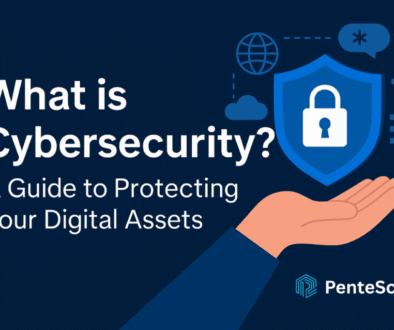CrowdStrike Falcon vs. Traditional Antivirus: Which Is Better for Ransomware Protection?
Cybersecurity has become more crucial today than ever as cyber threats evolve, posing significant risks to individuals and businesses. Among these threats, ransomware has emerged as one of the most destructive and pervasive forms of cyberattack. In the ongoing debate of CrowdStrike Falcon vs. traditional antivirus, understanding which solution offers better protection against ransomware is essential for ensuring robust cybersecurity.
Understanding Ransomware
What is Ransomware?
Ransomware is malicious software designed to block computer systems or data access until a ransom is paid. This malware encrypts the victim’s files, rendering them inaccessible, and demands payment for the decryption key. The effects of ransomware can be devastating, leading to substantial financial losses, reputational damage, and operational disruptions. Check out our article Alert! Beware of Fake CrowdStrike Recovery Resources Created by Cybercriminals Exploiting Microsoft Devices – How to Protect Yourself.
Types of Ransomware and Their Attack Methods
- Crypto Ransomware: Encrypts files and demands a ransom for the decryption key. Examples include CryptoLocker and WannaCry.
- Locker Ransomware locks the victim out of their device entirely and displays a ransom note. Examples include Police-themed ransomware.
- Scareware: Displays fake warnings about malware infections and demands payment for removal. Examples include FakeAV.
Recent Ransomware Trends and Statistics
Ransomware attacks have surged in recent years. According to Cybersecurity Ventures, global ransomware damage costs were approximately $20 billion in 2021. This figure is predicted to rise to about $42 billion in 2024 and a staggering $265 billion in 2031. The frequency of these attacks is alarming, with a new organization falling victim every 11 seconds. These statistics highlight the urgent need for effective ransomware protection.
Overview of Traditional Antivirus Solutions
What is Traditional Antivirus Software?
Traditional antivirus software is designed to detect, prevent, and remove malicious software, including viruses, worms, and trojans. These solutions typically rely on signature-based detection, which identifies known malware by comparing files to a database of known malware signatures.
Key Features of Traditional Antivirus Solutions
- Signature-Based Detection: Identifies known malware based on a database of signatures.
- Heuristic Analysis: Detects new or unknown malware by analyzing the behavior of suspicious files.
- Real-Time Scanning: Continuously monitors the system for malware.
- Scheduled Scanning: Allows users to schedule regular scans to detect and remove malware.
Strengths and Limitations
Strengths:
- Established Technology: Traditional antivirus solutions have been around for decades and are widely trusted.
- Effective Against Known Malware: Signature-based detection is highly effective at identifying and removing known malware.
Limitations:
- Slower Updates: Signature databases need regular updates to keep up with new threats, which can be slow.
- Limited Protection Against Advanced Threats: Traditional antivirus solutions may struggle to detect and prevent more advanced and evolving threats, such as ransomware.
Introduction to CrowdStrike Falcon
What is CrowdStrike Falcon?
CrowdStrike Falcon is a next-generation endpoint protection platform that provides comprehensive security against various threats, including ransomware. Unlike traditional antivirus solutions, Falcon leverages a cloud-native architecture and advanced technologies such as machine learning and behavioral analysis.
Key Features of CrowdStrike Falcon
- Cloud-Native Architecture: Enables real-time data processing and threat analysis.
- Behavioral Analysis: Detects and responds to suspicious behavior patterns rather than relying solely on known signatures.
- Machine Learning: Continuously improves threat detection capabilities by learning from new data.
Unique Selling Points
- Threat Intelligence: Falcon leverages global threat intelligence to stay ahead of emerging threats.
- Real-Time Response: Provides immediate containment and remediation of threats.
- Minimal Performance Impact: Cloud-native architecture ensures that endpoint performance is not significantly impacted.
Comparing Protection Against Ransomware
Detection and Prevention
Traditional Antivirus:
- Signature-Based Detection: This method relies on known malware signatures to identify threats. While effective against known threats, it can struggle with new and evolving ransomware variants.
- Heuristic Analysis: This method uses behavior-based analysis to detect new threats, but it can generate false positives and is not always reliable.
CrowdStrike Falcon:
- Behavioral Analysis: Monitors for suspicious behavior patterns that indicate ransomware activity, providing more effective detection of new and unknown threats.
- Machine Learning: Threat detection models are continuously updated based on new data, improving its ability to detect and prevent ransomware attacks.
Response and Remediation
Traditional Antivirus:
- Manual Removal: Manual intervention is often required to remove detected threats, which can be time-consuming and may not always be effective.
- Limited Response Capabilities: Traditional solutions may lack advanced response capabilities to contain and remediate ransomware attacks quickly.
CrowdStrike Falcon:
- Automated Containment: Automatically isolate infected systems to prevent the spread of ransomware.
- Incident Response: Provides tools and support for rapid incident response and remediation, minimizing the impact of an attack.
Performance and Impact
Traditional Antivirus:
- System Performance: This can significantly impact performance, especially during scans and updates.
- User Experience: This may cause system slowdowns and interruptions, affecting overall user experience.
CrowdStrike Falcon:
- Minimal Performance Impact: Cloud-native architecture ensures that endpoint performance is minimally affected.
- Seamless User Experience: Provides continuous protection without significant system slowdowns or interruptions.
Case Studies and Real-World Examples
Organizations Using Traditional Antivirus Solutions
Several organizations have relied on traditional antivirus solutions for ransomware protection, with varying degrees of success. For example, Hancock Regional Hospital in Indiana experienced a ransomware attack on its information systems on January 11, 2018, despite having a well-known traditional antivirus solution in place. They paid about $55,000 in Bitcoin (approximately 4 BTC) to regain access to their systems. The attack resulted in significant downtime and financial losses, highlighting the limitations of traditional antivirus in protecting against sophisticated threats.
Success Stories with CrowdStrike Falcon
Many businesses have successfully thwarted ransomware attacks using CrowdStrike Falcon. For instance, the city of San Diego implemented Falcon and could detect and prevent a ransomware attack that targeted their critical systems. Falcon’s automated containment and real-time response capabilities allowed them to isolate and remediate the threat quickly, avoiding any significant impact on their operations.
However, it’s important to note that no solution is without its challenges. On July 19, 2024, a software update from CrowdStrike Falcon inadvertently crashed approximately 8.5 million Microsoft devices. While this incident was promptly identified and remediation is still ongoing, it serves as a reminder that even advanced solutions can encounter issues, emphasizing the need for a comprehensive and resilient cybersecurity strategy.
Cost Considerations
Cost Comparison
Traditional Antivirus:
- Lower Upfront Cost: Typically more affordable upfront compared to next-generation solutions.
- Licensing Fees: May require annual licensing fees, but these are generally lower than those of advanced solutions.
CrowdStrike Falcon:
- Higher Upfront Cost: Falcon’s advanced features and capabilities come at a higher price.
- Subscription-Based Pricing: Often involves subscription-based pricing, which can be more expensive over time.
Additional Value Factors
Ease of Management:
- Traditional Antivirus May require more manual management and regular updates.
- CrowdStrike Falcon: Cloud-native architecture simplifies management and reduces the need for manual intervention.
Scalability:
- Traditional Antivirus: Scaling in large or rapidly growing organizations can be challenging.
- CrowdStrike Falcon: Designed to scale easily across large and distributed environments.
Total Cost of Ownership:
- Traditional Antivirus: Lower initial costs but may involve higher long-term costs due to the need for frequent updates and manual management.
- CrowdStrike Falcon: Higher initial investment but offers lower long-term costs through automated updates and simplified management.
Pros and Cons
Traditional Antivirus
Pros:
- Established Technology: Proven and widely trusted solutions.
- Lower Upfront Cost: Generally more affordable initially.
Cons:
- Slower Updates: A lag in updating signature databases can leave systems vulnerable.
- Limited Protection: Struggles with advanced and evolving threats like ransomware.
CrowdStrike Falcon
Pros:
- Advanced Threat Detection: Behavioral analysis and machine learning provide superior protection.
- Real-Time Response: Immediate containment and remediation of threats.
- Minimal Performance Impact: Cloud-native architecture ensures minimal impact on system performance.
Cons:
- Higher Cost: More expensive upfront and over time.
- Reliance on Cloud Infrastructure: Dependent on internet connectivity and cloud services.
Conclusion
In the battle against ransomware, traditional antivirus solutions and CrowdStrike Falcon offer unique benefits and drawbacks. Traditional antivirus software is a reliable and cost-effective option for basic protection against known threats, but it may struggle with sophisticated and evolving ransomware attacks. CrowdStrike Falcon, on the other hand, provides advanced detection and response capabilities, making it a more robust solution for modern cybersecurity challenges.
Ultimately, the choice between these solutions will depend on each organization’s specific needs and resources. For businesses looking to enhance their ransomware protection, it is highly recommended to consider a comprehensive security strategy that includes advanced solutions like CrowdStrike Falcon.
Call to Action
We invite you to subscribe to our monthly newsletter and follow us on our Facebook, X, and Pinterest channels for more insights and updates on cybersecurity trends and best practices. Our blog provides valuable information and resources to help you stay informed and prepared against evolving threats.
Engage with our community to share knowledge, ask questions, and stay connected with industry developments. Visit our About Us page to learn more about who we are and what we do. If you have any questions, please reach out through our contact page. You can also explore our services to discover how we can help enhance your security posture.
Frequently Asked Questions
Traditional antivirus solutions rely on signature-based detection to identify known threats, which can be effective against well-established ransomware. However, CrowdStrike Falcon utilizes advanced behavioral analysis and machine learning to detect and respond to known and emerging threats in real time, providing a more robust defense against sophisticated ransomware attacks.
CrowdStrike Falcon’s cloud-native architecture allows it to process and analyze data off-device, reducing the load on the endpoint. This ensures that the system performance remains unaffected, unlike traditional antivirus software, which can slow down systems during scans and updates due to its on-device processing.
Ransomware attacks are becoming increasingly sophisticated and frequent, with the potential to cause significant financial and reputational damage. To safeguard against these evolving threats, a comprehensive protection strategy that includes advanced solutions like CrowdStrike Falcon, regular updates, and employee training is crucial.
Traditional antivirus solutions generally have lower upfront costs and annual licensing fees, making them more affordable for basic protection. In contrast, CrowdStrike Falcon involves a higher initial investment and subscription-based pricing but offers advanced features, automated updates, and simplified management, which can lower long-term costs for larger organizations.
While traditional antivirus solutions remain effective against many known threats, their reliance on signature-based detection limits their ability to protect against advanced and evolving threats like ransomware. To ensure comprehensive protection, businesses facing sophisticated cyber threats may need to consider more advanced solutions, such as CrowdStrike Falcon.




